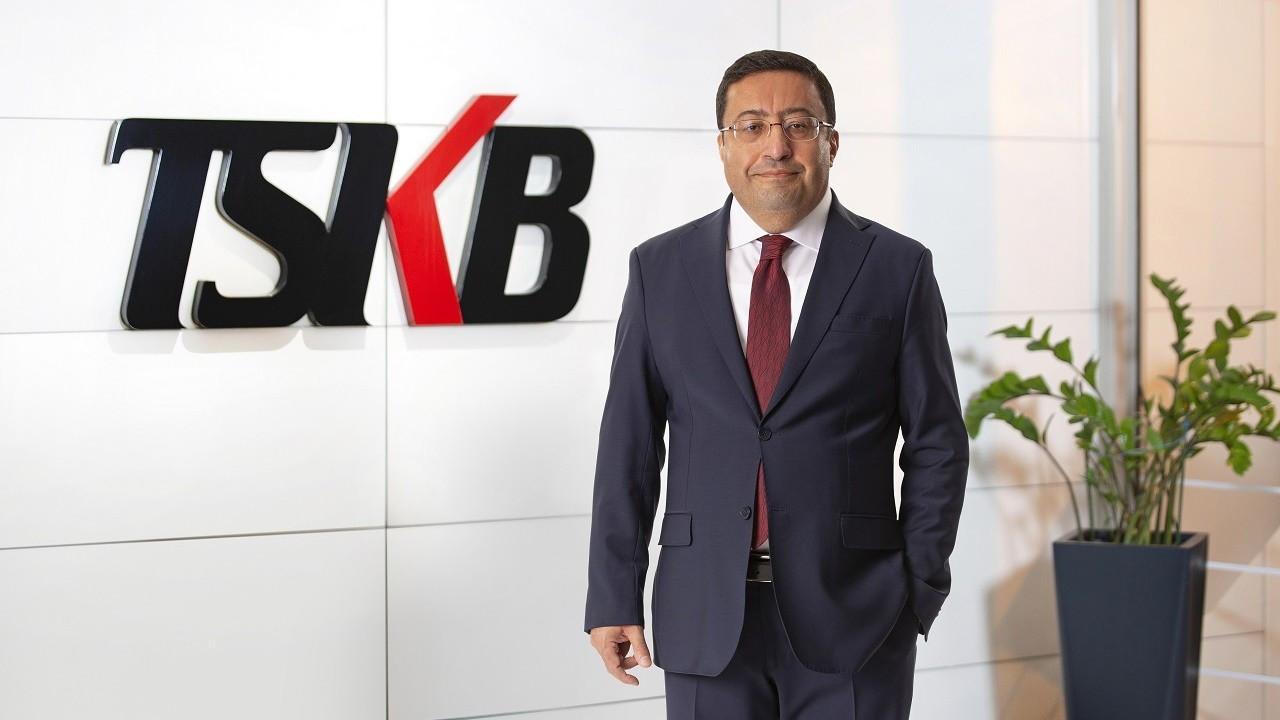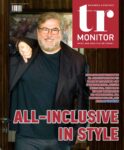BY BURCU GOKSUZOGLU
Q&A with Murat Bilgic, CEO of the Industrial Development Bank of Turkey (TSKB)
WHAT KIND OF PROCESS IS THE TURKISH ECONOMY GOING THROUGH?
The surge in energy prices is at the fore. We predicted that Turkey might have difficulties in supplies when the pandemic emerged. Turkey ended 2021 with serious growth. We experience the aftermath of this as inflation. It is possible that the Russia-Ukraine war has affected Turkey more severely than the rest of the world. Ukraine is an important input country for Turkey on the supply side. On the Russian side, the war affects us in terms of commercial relations and tourism. Inflation is higher in Turkey than in the rest of the world. As bankers, we are accustomed to such issues. These are issues that have precedent. Banking means managing the risk.
TURKEY’S RISK PREMIUM HAS ALSO INCREASED DURING THIS PERIOD. IS THERE ANY PROBLEM WITH OUTSOURCING?
There is no funding problem worldwide. Turkey doesn’t have issues different from those around the world. Funders perform risk assessments for inflation, protectionism, breaks in supply chains, the emergence of new balances, and the war. There are problems we ‘import’. We have also our macro problems. Funders play it safe when all these are gathered. They have hesitation. These problems have also deteriorated the macro-outlook in Turkey, including the surge in CDS and foreign exchange (FX) rates. Although these create concerns, interest in Turkey hasn’t been lost. Financial institutions focus on Turkey since it is a big country with a dynamic population of over 80 million and serious investments and infrastructure. We will see fund inflows when such problems are overcome.
HOW DO YOU FORESEE THE UPCOMING PERIOD?
Funds have been directed to fields such as green transformation, climate risk, and environmental issues, social justice, and governance (ESG). International financial institutions want to support investments in these fields. Such fields bring the Industrial Development Bank of Turkey (TSKB) to the forefront.
We’ll talk more about protectionism in the coming period. Countries will take measures to protect their economies in fields such as interest rate policies as well as central bank policies. Investments that have a sustainability dimension will always find funding. That’s why TSKB will have a role to play. We are looking at the medium and long term as we provide long-term loans. Of course, short-term fluctuations create risk. But they don’t affect our long-term perspective that much. International financial institutions also look at the long-term. Although the shortterm fluctuations cause hesitations within the frame of some risk management principles, the interest of financial institutions in Turkey hasn’t decreased. There may be problems in the temporary period, but there is no issue in outsourcing in the medium and long term. TSKB will be at the forefront given that it has serious know-how.
ARE NEW LOAN AGREEMENTS ON YOUR AGENDA?
We inked a USD 220m sustainability-concept loan deal with the Bank of International Cooperation (JBIC) in Japan, a USD 100m loan deal with the International Finance Corporation (IFC), and a EUR 53.5m sustainability-concept loan deal with the European Bank for Reconstruction and Development (EBRD). These loans, which are ready for use, will be provided to the correct projects as long-term investment loans. Talks continue with these institutions for additional deals, which are expected to be closed in the second half of the year (H2). Moreover, other talks will continue in (H2). We have ongoing agreement processes with international financial institutions including the World Bank.
WHAT KIND OF DEVELOPMENTS DO YOU EXPECT IN THE REST OF THE YEAR IN TERMS OF IPO, ISSUANCES, MERGERS AND ACQUISITIONS?
Interest is high in investment banking. Banking is still a profitable field in Turkey. 2021 was an active year in terms of initial public offerings (IPO) and issuances. We expect 2022 to be active in terms of IPOs. TSKB mediated the issuance of 10 borrowing instruments in 2021, seven of which were sustainability-linked. Bond and Sukuk issuances will continue this year. There are many companies in our portfolio for IPO. We also estimate for this year to be active in terms of bond issuances, lease certificates, and other borrowing instruments. TSKB will continue to play an active role in IPO and issuance of other borrowing instruments by using its brokerage subsidiary Yatirim Finansman Menkul Degerler as a sales channel. Investment banking is the issue that I attach importance to in 2022. TSKB has extremely powerful investment loans. But it should provide further funding to this field. TSKB will have a comprehensive, transforming role in deepening capital markets, activating alternative borrowing instruments, and providing investors access to the most efficient financing opportunities.
WHAT ARE YOUR GROWTH TARGETS IN SUSTAINABLE BANKING?
Over 90% of the loans on our balance sheet are used within the scope of the UN’s sustainable development goals. We hope to not to reduce this ratio. 60% of these are related to climate and environmental issues. A EUR 11bn investment, roughly, is needed for Turkey’s sustainability transformation. The total asset size of TSKB hovers around USD 5bn. As TSKB, we estimate to provide an additional resource of USD 5bn in the next 10 years within the context of sustainability. Sustainability forms the backbone of our work. We fund our balance sheet from international resources. Almost all of these resources are provided within a scope including syndications. I am not just talking about TSKB’s syndication. Syndications of all private banks can be almost fully converted sustainably. We would be unable to provide international resources otherwise. That’s why sustainable banking complies with our goals. It has a low volume in the TSKB’s finance system, but we have continued our operations for nearly 30 years within the frame of these goals. As we started this sustainability transformation early, we’ll always transfer a share of the EUR 11bn investment needed towards Turkey’s overall sustainability transformation.
“International financial institutions want to support investments in fields such as green transformation, climate risk, environmental movements, social justice, and governance. These fields will bring TSKB to the forefront.”










